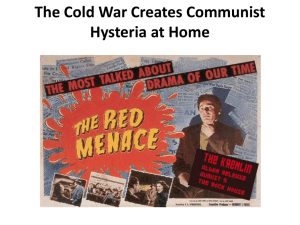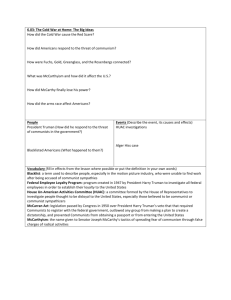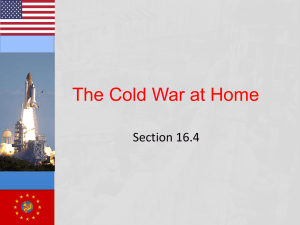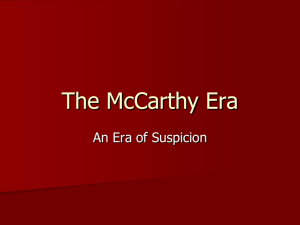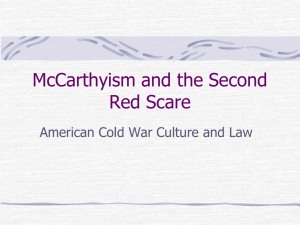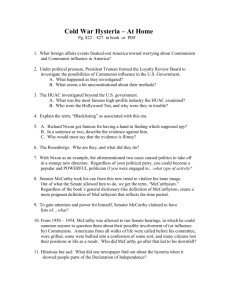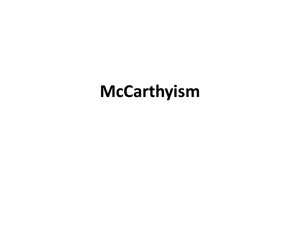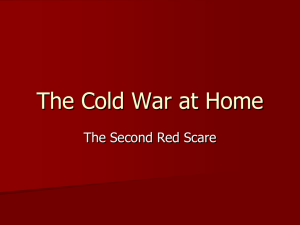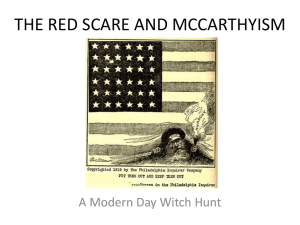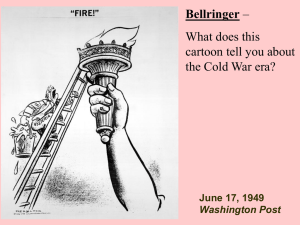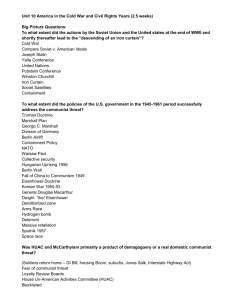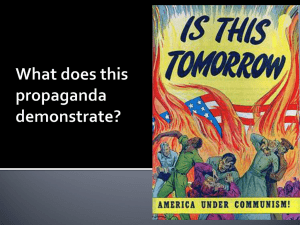McCarthyism and the Second Red Scare
advertisement
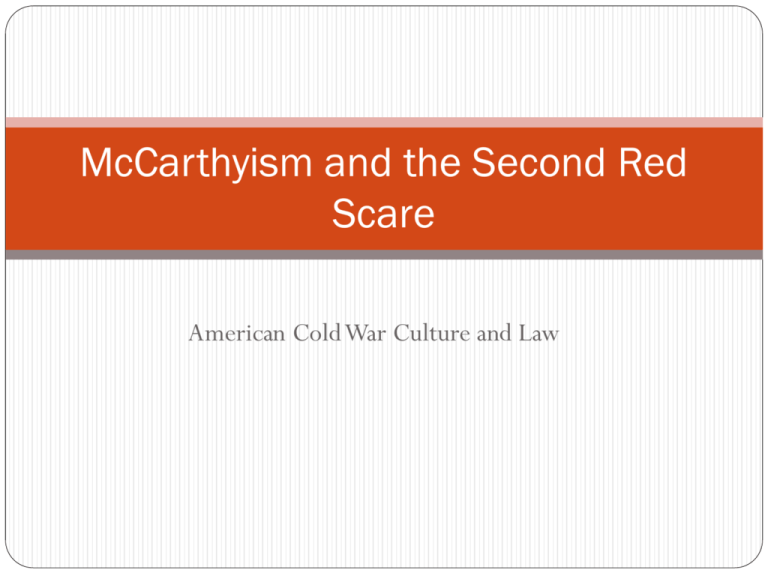
McCarthyism and the Second Red Scare American Cold War Culture and Law Red Scare The fear of communist and that communist were going to infiltrate government offices 1949 Red Scare intensifies Soviets test atomic bomb China falls to communism These events made Americans believe we were losing the Cold War House UnAmerican Activities Committee (HUAC) Subcommittee of the House of Representatives Purpose: To root out “subversion” of the American system The Question: “Are you now or have you ever been a member of the Communist Party?” Hollywood on Trial First goal of the HUAC was to focus on the film industry Ronald Reagan was the President of the SAG, and testified that there were Communists in Hollywood 10 screenwriters, the “Hollywood Ten”, used the 5th amendment and refused to testify Blacklisted Senator Joseph McCarthy Wisconsin Republican facing defeat in election of 1950 Turns to a platform of anti-Communism Speech to a Republican women’s group in West Virginia News soon spreads The List “I have here a list of 205 names that were made known to the Secretary of State as being members of the Communist Party and who nevertheless are still working and shaping policy in the State Department.” Nobody actually saw the list, but that didn’t stop McCarthy from making acquisitions Helped him get elected The McCarran Act Formal name: The Internal Security Act Truman vetoed bill, but Congress overrode his veto Requires communist organizations to register with the Subversive Activities Control Board Authorizes the arrest of suspect persons during national emergency Communists could not have passports Six concentration camps built for this purpose The Immigration and Nationality Act Another McCarran authored law Barred people who were deemed either “subversive” or “homosexual” from becoming citizens or even visiting the U.S. Power to deport immigrants who were members of the Communist Party, even if they were citizens In effect until 1973 Definition of McCarthyism The fear, suspicion, and scapegoating that surrounded McCarthy, his accusations and the general curtailment of civil rights during the Cold War era. Examples of McCarthyism In NYC, citizens must take loyalty oath to receive a fishing license FDR’s New Deal is re-evaluated as “a socialist conspiracy” and “20 years of treason” Jonas Salk invents vaccine for Polio; a congressman suggests that it be distributed to all school-age children for free. Eisenhower’s Secretary of Health rejects the idea as an attempt to “socialize medicine through the backdoor.” McCarthy’s Downfall 1954 McCarthy began to look for Soviet spies in the U.S. Army In the televised hearings, McCarthy often bullied officers, harassed them about small details, and accusing them of misconduct Began to lose popularity Senate passed a vote of Censure Formal disapproval Lost all influence in the Senate Died in 1957
